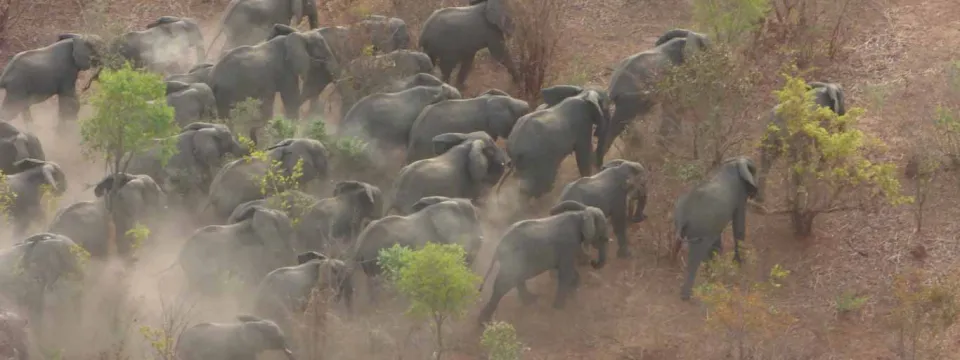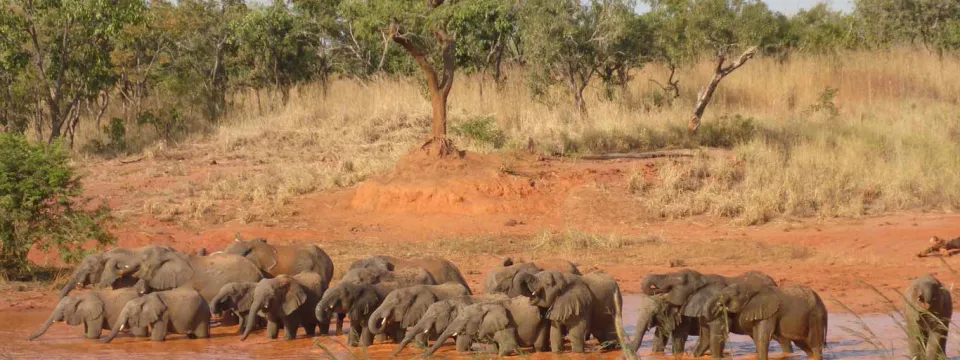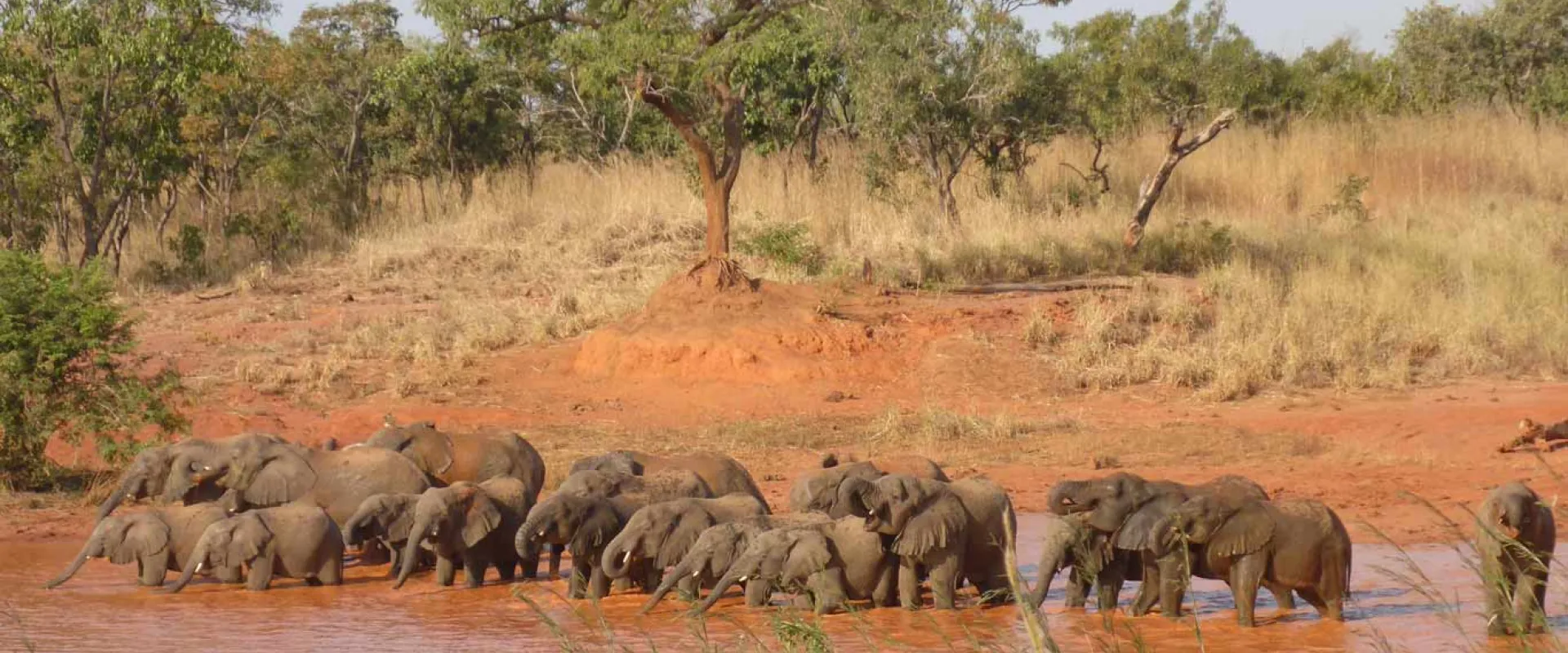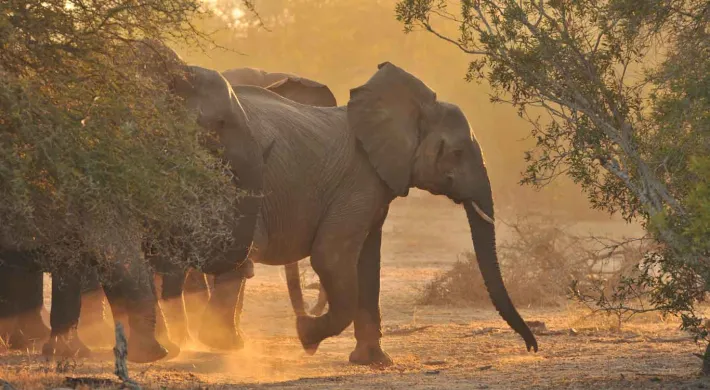Written by Guest Blogger Nachamada Geoffrey, Landscape Director-Yankari WCS Nigeria
Elephants are culturally important and a cornerstone of the $34 billion tourism industry across Africa. They play a critical role as ecosystem engineers, maintaining mineral-rich clearings in the forest, on which many other species rely, and providing a way for important soil nutrients to be spread around at a continental scale. As natural gardeners, and sculptors of Africa’s most iconic landscapes, elephants help to disperse seeds and create spaces for the other plant species to grow. Once widespread across our country, Nigeria, elephants have declined by more than 50% in less than 20 years and it is certain that fewer savanna elephants survive across the country today. The largest and most important elephant herd remaining in the country today is located at the Yankari Game Reserve with an estimated population of about 150 elephants remaining.

The major threats to elephant populations are hunting for ivory, human-elephant conflict due to humans coming into close contact with elephants, and habitat loss, typically as a result of exponential human population growth leading to humans needing more land for housing, farms, road construction and other development projects. Nigeria is known to function as a regional hub for the illegal trade in ivory (much of it from central Africa), and this has undoubtedly fueled demand for ivory within the country. Unfortunately, there will be no elephants remaining in Nigeria if poaching and the ivory trade are allowed to thrive any longer.
The Wildlife Conservation Society (WCS) has supported the conservation of elephants and other wildlife in Yankari since 2009, and took over the management of all ranger patrols and other conservation activities since 2014 through a co-management agreement with the Bauchi State government. Since the change in management, the rate of elephant poaching has declined significantly, going from about 20 elephants killed annually to zero elephants poached to date since May 2015 - nearly 5 years!
The North Carolina Zoo has provided continual technical support to the project since 2009, and has provided constant training and retraining to our teams on the ground over the years on CyberTracker and SMART. Frequent training and upgrade of our Yankari data model by the Zoo has helped us to use SMART efficiently. Although SMART is not the only tool we use to help manage our anti-poaching patrols - we also use VHF digital radio systems and satellite collars on elephants among other tools - its importance over the past years helped us to make better decisions on how to allocate our scarce resources.
My journey with the WCS Nigeria program began in 2013, working very closely with the rangers and managing all the ranger patrols in Yankari. In addition, I also engaged with the many communities surrounding the reserve, all of which are critical stakeholders in the long term survival of elephants and other wildlife remaining in the Reserve.

Some of the work we have done with the communities has included school visits for children in schools surrounding the reserve who ordinarily could not afford to visit the Reserve. We provide free transportation and meals to the kids when they visit, in addition to customized books and shirts with elephant pictures on them. We also organize annual workshops for all the stakeholders surrounding Yankari to spend two days in the reserve, so they can learn about the work we do, and for us to better understand their concerns, expectations, and how we can better support them living in harmony as neighbors with elephants and other wildlife.
In addition, we started an “elephant guardian” program in 2016, in collaboration with village chiefs from communities surrounding the reserve. We currently employ 18 people from nine of the communities most affected by elephant crop raiding, who we have trained on safe and effective means to chase away elephants from their farms and have provided them with solar lanterns for chasing elephants at night, as most of the crop raiding happens late at night. We pay the guardians a small monthly allowance in addition to providing cell phones to each of them and monthly phone credit to enable them to call us each time elephants go outside the reserve. This program has helped to mitigate the pressure from the communities each time marauding elephants go outside to their farms and communities.

Before we started the elephant guardian program, the communities were very agitated whenever they experienced any form of conflict with the elephants. Although human-elephant conflict remains a significant problem, and we continue to try to find other means of mitigating it, the communities are now more tolerable, as they feel that they are part of the solution.
This has been a difficult journey working to save these elephants but a rewarding one. Zero elephant poaching recorded since May 2015 is worth all the hassle.


